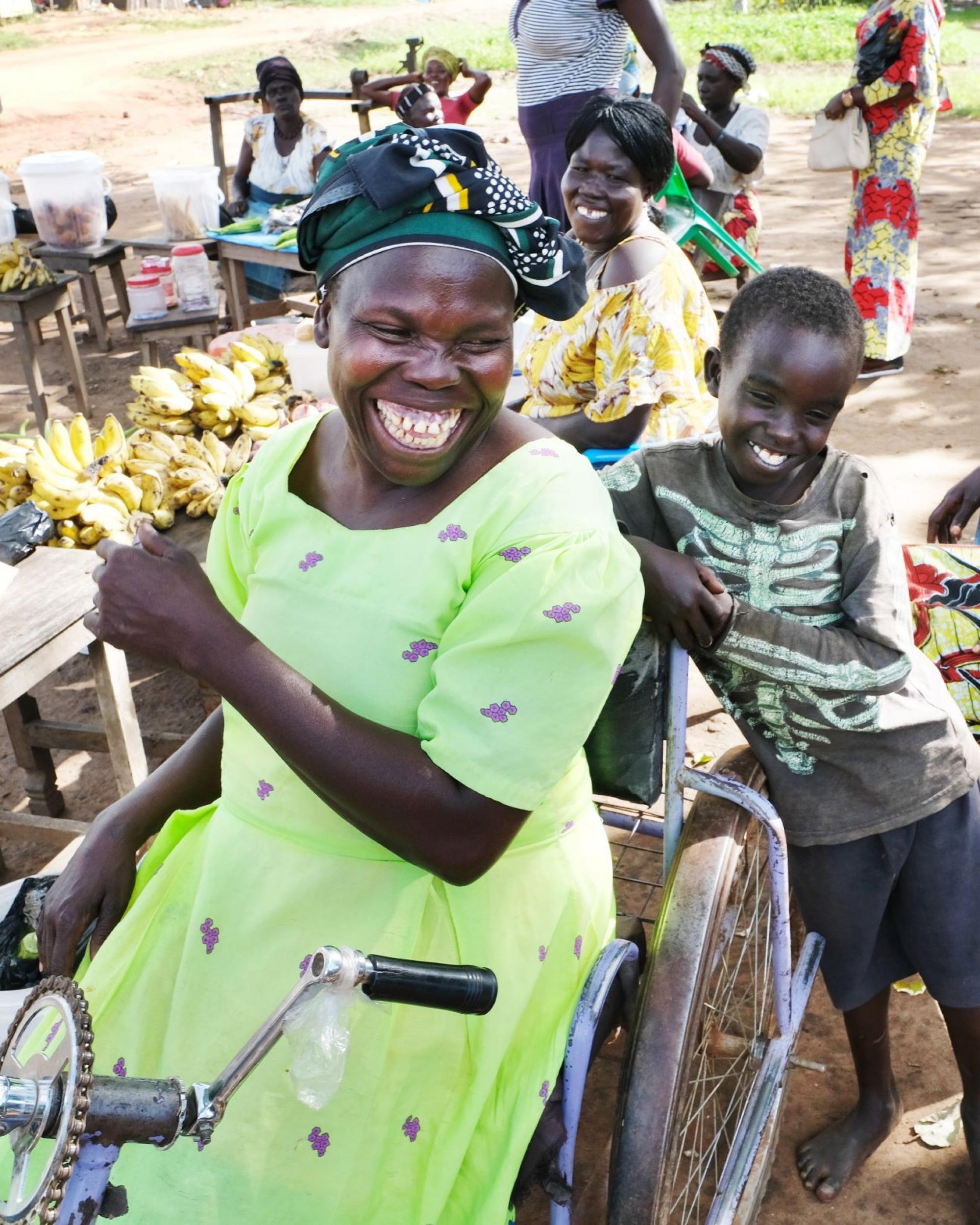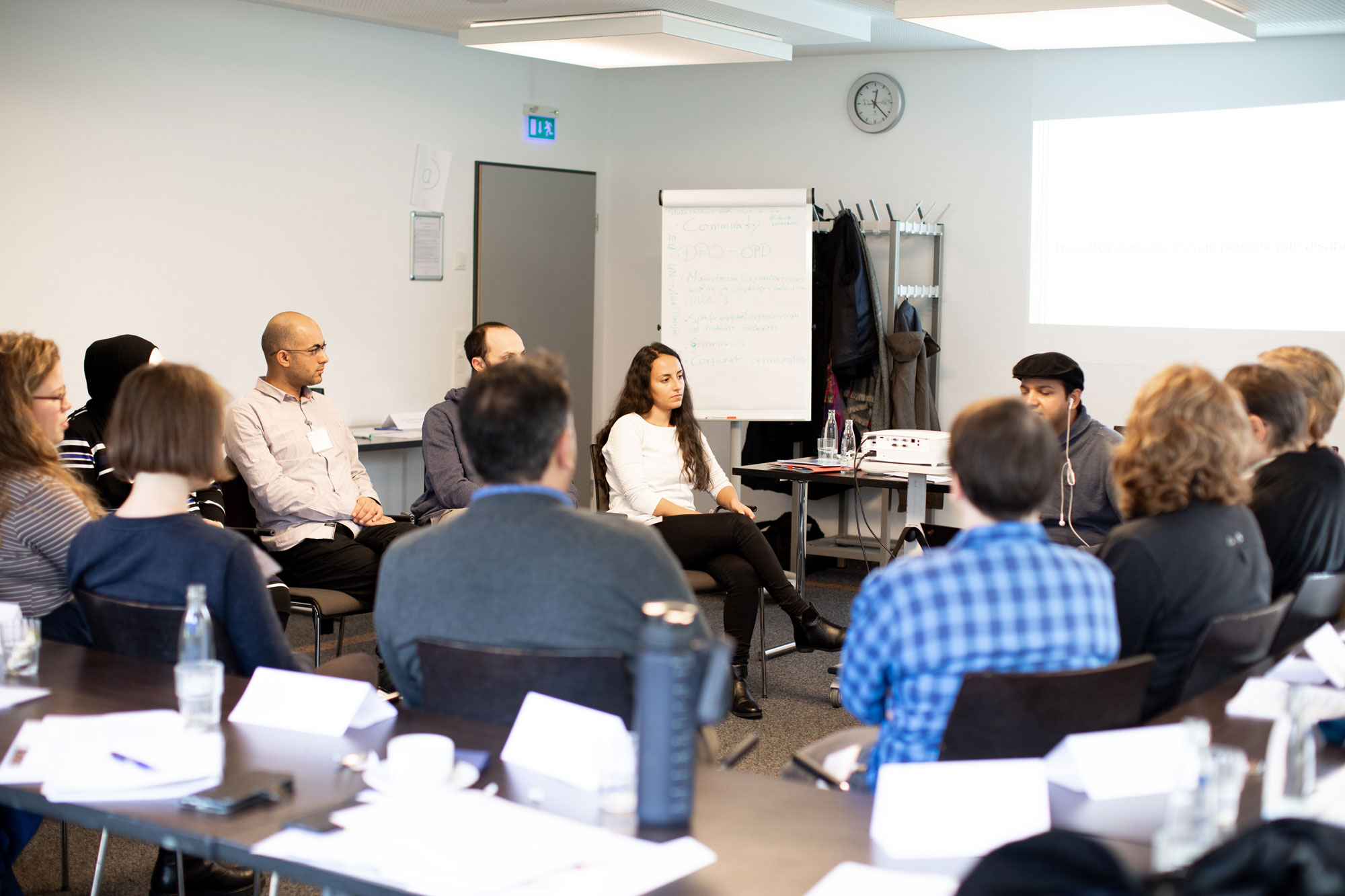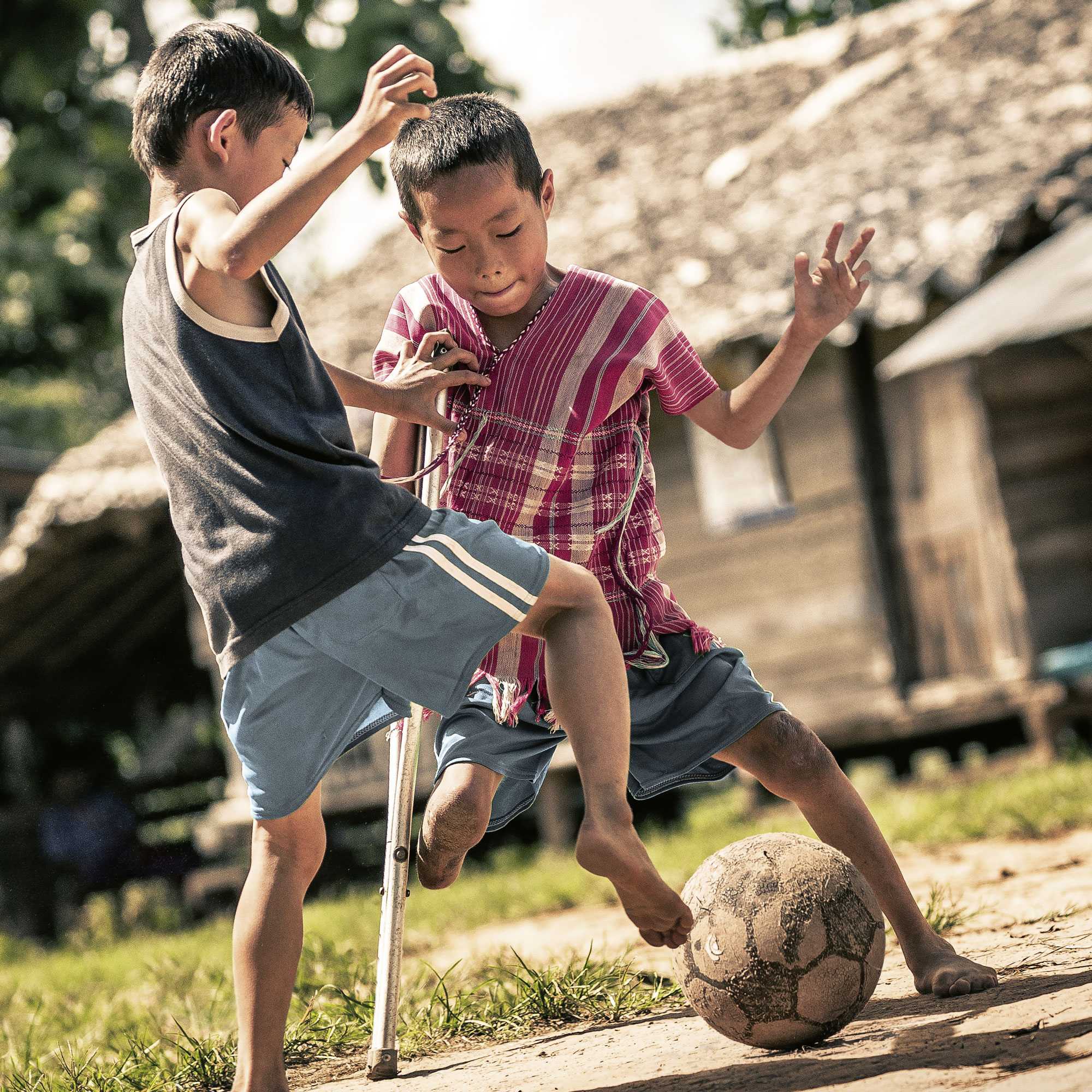
© Telemans/ HI
About the Project
During humanitarian crises, persons with disabilities are often excluded from relief efforts. Environmental, institutional and attitudinal barriers prevent them from participting and accessing humanitarian assistance.
It is therefore essential to raise awareness, develop professional capacities and enhance response capasities for disability-inclusive humananitarian programming and coordination both on local and global level.
Our Goal
We want to ensure that persons with disabilities have equitable access, can pariticipate meaningfully in humanitarian action and enjoy equal protection. The protection and safety of persons with disabilities of all genders and ages is a humanitarian and human rights obligation.
Our goal is to mainstream disability in global and local humanitarian action in line with the Inter-Agency Standing Committee’s (IASC) Guidelines on Inclusion of Persons with Disabilities in Humanitarian Action - the first system-wide globally accepted guidelines on inclusive humanitarian action. We will also scientifically document change processes and promising practices.
What We Do
Since 2016, the Leave no one behind! project series focuses on mainstreaming disability in humanitarian action through capacity development, applied research and awareness raising. Phase 2 also significantly supported the development, translation and dissemination of the IASC Guidelines on Inclusion of Persons with Disabilities in Humanitarian Action.
In Phase 3, we are building on these achievements with our combined expertise. We support the operationalisation of the IASC Guidelines to enhance response capacities for disability-inclusive humanitarian programming and coordination. Our four main areas of activity are 1. Capacity Development, 2. Development of tools, 3. Set-up and support of technical support and surge capacity mechanisms and 4. Documentation of good and promising practices.
Whom We Address

© Laura Thomas
Our target group includes widely seeing the whole humanitarian community, different actors involved in the field of humanitarian action in global, regional and local level.
Phase 3 - Leave no one behind! builds upon the activities started in previous project phases. We continue the capacity building of German humanitarian actors and their local partners, but also extends our reach through E-learning modules and sector-specific learning packages to the international level.
The project also addresses the regional and local humanitarian actors, including organisations of persons with disabilities. We will complement the global level efforts with local level technical support on disability inclusion and pilot activities.
Phase 1 and 2 highlighted the positive impact and sustainability of the project trainings when targeting professionals at the early state of their careers. Therefore we continue to involve students and lecturers from study programmes on humanitarian action.
Where We Operate
Phase 3 is a combination of global and local interventions. We continue the capacity building activities of international and German humanitarian actors and their local partners. In Germany, the project is not confined to a certain city.
In particular, the project is expanding its work to East and West Africa, including six pilot countries: Somalia and Somaliland, South Sudan, Uganda, Nigeria, Niger, and Cameroon. In these countries, the project will jointly with local and international non-governmental organizations, UN agencies, and organizations of persons with disabilities address the need for technical support, training and tool development. Learn more on our Pilot Countries
We will also share our findings, reports and developed materials and tools within the humanitarian community on global level.
What Have We Achieved in Phase 2

The project "Phase 2 - Leave no one behind!" has achieved the following successes from 2018 to 2021:
- supported the finalisation and publication of the IASC Guidelines on "Inclusion of Persons with Disabilities in Humanitarian Action" and translated it into Spanish and French;
- provided financial and technical support to a total of 7 events to disseminate the IASC Guidelines, reaching approximately 945 participants;
- with 27 training(-inputs), i.e. 7 in-house, 5 sector-specific, 2 regional and 13 inputs in external trainings, we reached a total of 158 organisations, or 216 organisations accounting for the different national associations;
- a total of 698 participants took part in our trainings, including many people who took part in more than one training;
- provided technical support to 13 organisations and conducted 7 in-house trainings; 5 organisations participated in coaching
- conducted 11 university lectures and reached more than 237 students;
- placed the topic of disability at 7 humanitarian action and disaster preparedness events and reached approximately 851 participants;
- published 2 case studies on disability inclusion in Cox's Bazar, Bangladesh and South Sudan, as well as two academic articles.
More information on our achievements and project activities of Phase 2, are available in our project review.